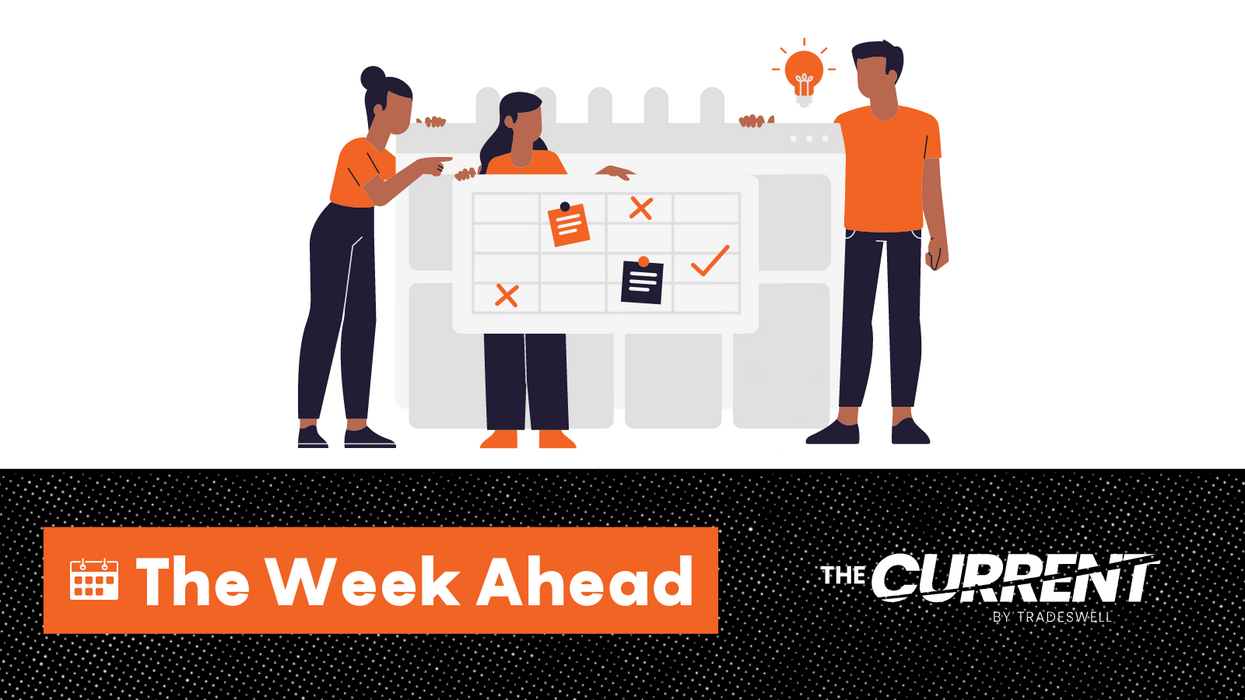Economy
08 August 2022
The Week Ahead: Inflation, earnings and eTail
Here's a look at ecommerce happenings for Aug. 8-12.

Here's a look at ecommerce happenings for Aug. 8-12.

Welcome to a new week. Inflation will be in focus for the economy amid a busy week of ecommerce events. Here’s the agenda:
eTail: The ecommerce and omnichannel conference in Boston features leading brands and retailers, including speakers from Crocs, Best Buy, ThredUP, Lowe’s and more. Daily sessions focus on changing retail customers, and ecommerce experiences. (Aug. 8-10)
Camp Miva: Ecommerce shopping cart software Miva brings together merchants and partners in San Diego, California for learning and networking. (Aug. 10-12)
Ecommerce Day: Held at the Hilton Los Angeles Airport and streamed virtually, ecommerce.io presents speakers from brands and leading ecommerce software companies, networking and more. (Aug. 12)
Consumer Price Index: The US Labor Department’s report on July inflation arrives as businesses, consumers and policymakers are looking for signs of price relief. June’s report delivered a year-over-year increase of 9.1%, which was a new 40-year high. (Aug. 10)
Producer Price Index: Also known as the wholesale inflation rate, this index measures the price of goods before they reach retailers. In June, the rate was near a record high, offering another sign inflation was still heating up. (Aug. 11)
Consumer Sentiment: The University of Michigan will deliver its preliminary report for the month on consumer attitudes and outlooks for the economy. In its final reading for July, this measure was near its lowest on record due to inflation. (Aug. 12)
Second quarter earnings reports continue this week. Here’s a look at the companies that are reporting in ecommerce and consumer goods:
Monday, August 8: Allbirds, Blue Apron
Tuesday, August 9: Ralph Lauren, Purple Innovation
Thursday, August 11: Warby Parker, Utz, Canada Goose, Flowers Foods, HanesBrands
So, no recession?: Friday’s jobs report was better than expected, as employers added 528,000 jobs in July and officially recovered all of the jobs lost during the pandemic. This was taken as a big sign that the economy is not in a recession, but it also may go down as a leading indicator that this period is rewriting economic rulebooks.
Third-party cookie demise delayed: Google announced recently that the demise of the third-party cookie will be delayed another year, to late 2024. How are brands and advertisers adjusting as a result?
What’s next for DTC? Model shifts and recent layoffs at Allbirds and Glossier signal changes are afoot at the companies that wrote the direct-to-consumer playbook. How will these companies shift, and what new models will emerge for this era?
Campbell Soup Company CEO Mark Clouse offered thoughts on messaging amid inflationary shifts in consumer behavior.
After months of elevated inflation and interest rate hikes that have the potential to cool demand, consumers are showing more signs of shifting behavior.
It’s showing up in retail sales data, but there’s also evidence in the observations of the brands responsible for grocery store staples.
The latest example came this week from Campbell Soup Company. CEO Mark Clouse told analysts that the consumer continues to be “resilient” despite continued price increases on food, but found that “consumers are beginning to feel that pressure” as time goes on.
This shows up in the categories they are buying. Overall, Clouse said Campbell sees a shift toward shelf-stable items, and away from more expensive prepared foods.
There is also change in when they make purchases. People are buying more at the beginning of the month. That’s because they are stretching paychecks as long as possible.
These shifts change how the company is communicating with consumers.
Clouse said the changes in behavior are an opportunity to “focus on value within our messaging without necessarily having to chase pricing all the way down.”
“No question that it's important that we protect affordability and that we make that relevant in the categories that we're in," Clouse said. "But I also think there's a lot of ways to frame value in different ways, right?”
A meal cooked with condensed soup may be cheaper than picking up a frozen item or ordering out. Consumers just need a reminder. Even within Campbell’s own portfolio, the company can elevate brands that have more value now, even if they may not always get the limelight.
The open question is whether the shift in behavior will begin to show up in the results of the companies that have raised prices. Campbell’s overall net sales grew 5% for the quarter ended April 30, while gross profit margins held steady around 30%. But the category-level results were more uneven. U.S. soup sales declined 11%, though the company said that was owed to comparisons with the quarter when supply chains reopened a year ago and expressed confidence that the category is seeing a longer-term resurgence as more people cook at home following the pandemic. Snacks, which includes Goldfish and Pepperidge Farm, were up 12% And while net sales increased overall, the amount of products people are buying is declining. Volumes were down 7%.
These are trends happening across the grocery store. Campbell is continuing to compete. It is leading with iconic brands, and a host of different ways to consume them. It is following that up with innovation that makes the products stand out. Then, it is driving home messaging that shows consumers how to fit the products into their lives, and even their tightening spending plans.
Campbell Soup is more than 150 years old, and has seen plenty of difficult economic environments. It is also a different business today, and will continue to evolve. At the end of the day, continued execution is what’s required.
“If it's good food, people are going to buy it, especially if it's a great value,” Clouse said.